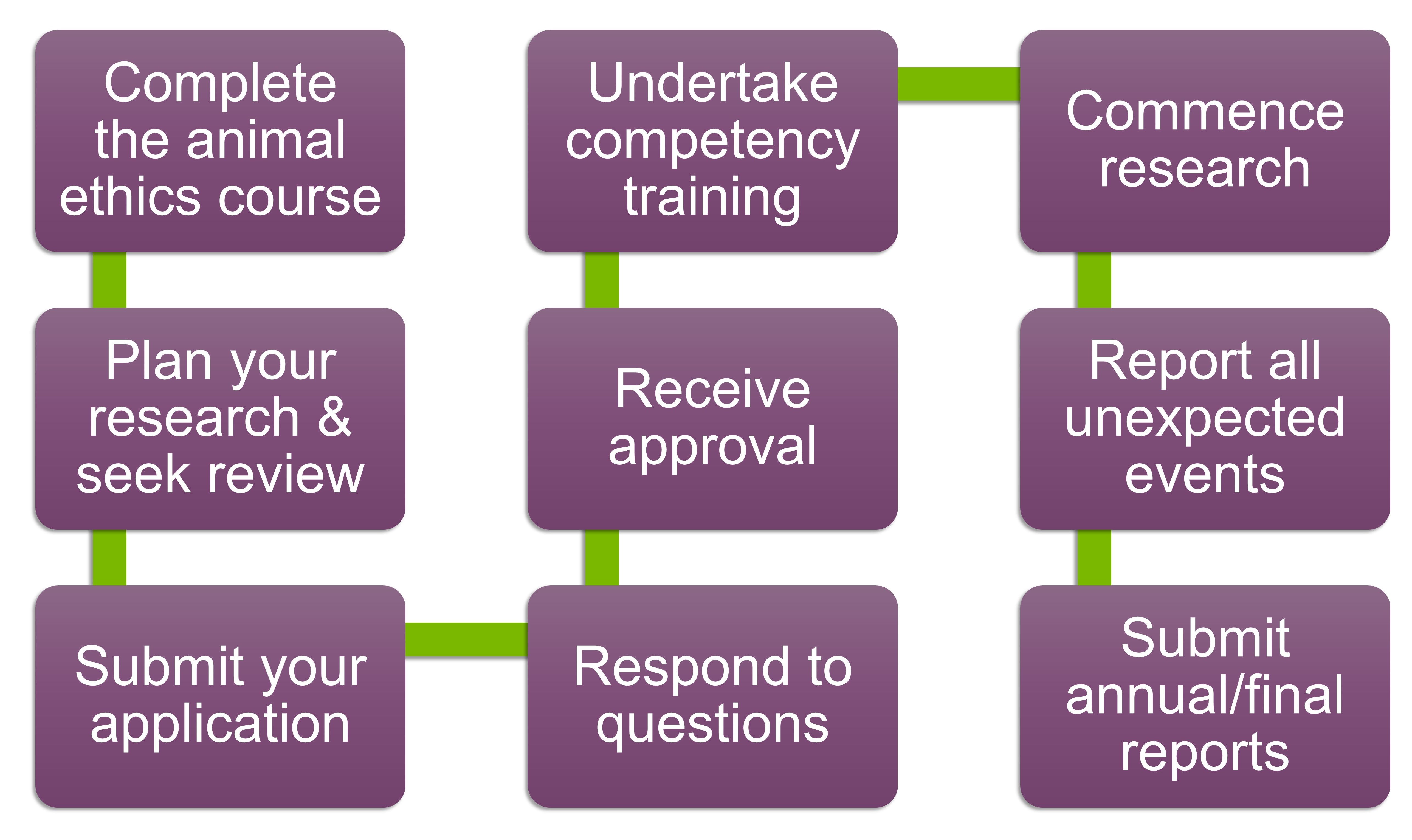Research Integrity and Ethics
Learning outcomes
Upon completion of this module, you will be able to:
- Understand the policies and procedures that govern the responsible conduct for research in Australia and UNE
- Recall and apply the principles of responsible conduct of research
- Articulate and adhere to the responsibilities of researchers
- Identify where to go for further support on research integrity (if required)
- Where applicable, identify aspects of your research that require Human and/or Animal Research ethics approval

3.1 Research Integrity
Australian and International communities expect research to be conducted responsibly, ethically and with integrity. This module will facilitate your understanding of your role, responsibilities and requirements in relation to the responsible research conduct, research integrity and appropriate scholarly behaviour as a University of New England research student.

HDR students complete research integrity training prior to confirmation of candidature. During this training, you will be introduced to the Australian Code for the Responsible Conduct of Research (2018), the UNE Code of Conduct for Research Rule (CCR) and the UNE Higher Degree Research Student Responsible Research Conduct Policy.
Research Integrity online training is located in the:
- HDR Resources Advice Portal (HDR RAP) in Moodle site under the topic HDR Integrity and Induction:
- Module 1 – Research Integrity and Research Code of Conduct
- Module 2 – Plagiarism and Misconduct Research.

3.2 Human Research Ethics
All staff, students, and external researchers seeking to conduct research involving Humans at the University of New England are required to receive approval from the UNE Human Research Ethics Committee (HREC) prior to beginning research.
UNE HREC uses guidelines set out in the National Statement on Ethical Conduct in Human Research.
Human research is conducted with or about people, or their data or tissue. Human participation in research is therefore to be understood broadly, to include but not limited to, the involvement of human beings through:
- taking part in surveys, interviews, or focus groups
- undergoing psychological, physiological or medical testing or treatment
- being observed by researchers
- researchers having access to their personal documents or other materials
- the collection and use of body organs, tissues, or fluids (eg skin, blood, urine, saliva, hair, bones, tumour, and other biopsy specimens) or their exhaled breath
- access to their information (in individually identifiable, re-identifiable or non-identifiable form) as part of an existing published or unpublished source or database
UNE HREC training can be organised by contacting UNE Human Ethics. Forms and information about UNE HREC processes can be found on the UNE Human Research Ethics web page, which provides information on:
- Applying for ethics approval - including forms and guidelines
- Researcher resources
- HREC meeting dates
- Other useful links

3.3 Animal Research Ethics
The use of animals for research is a privilege granted to scientists with the understanding that significant new knowledge will be generated without causing unnecessary harm to the animal. The Australian code for the care and use of animals for scientific purposes is to promote the ethical, humane and responsible care and use of animals.
All staff, students and external researchers seeking to conduct research involving animals at the University of New England are required to receive approval from the UNE Animal Ethics Committee (AEC) prior to beginning research. Approval by the UNE AEC is required for the use of any vertebrate animals or higher order invertebrates for research and teaching.
All staff, students and external researchers are also required to complete the UNE Animal Ethics Course (or provide documents for an exemption). Contact UNE Animal Ethics to arrange access to the course.
The process of preparing a submission to the UNE AEC to gain approval for research or teaching activities that involve animals can be quite a daunting and time consuming task. The following is a simple guide to the UNE AEC process.

Figure 3.1 Simple overview of the UNE AEC Process.
Forms, meeting dates, Committee information, and SOP’s can all be found on the UNE AEC webpage.
An overview of the AEC process is available on the Becoming Research Ready Moodle (UNE log-in required).

Progress to Module 4 - Getting Organised
Feedback
In order to improve this resource, please email us if you have any questions, comments, or feedback to SOL:AR



